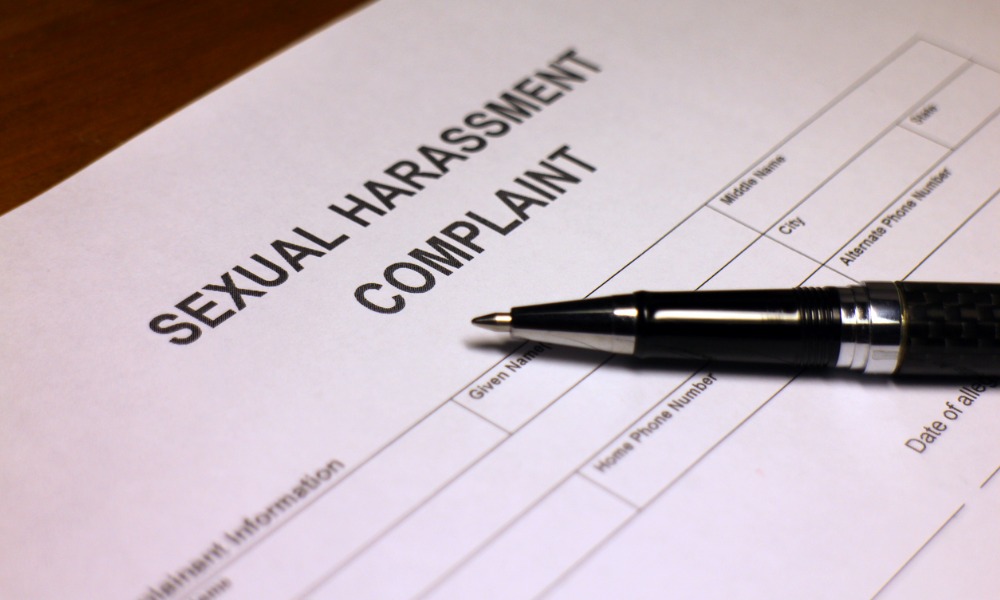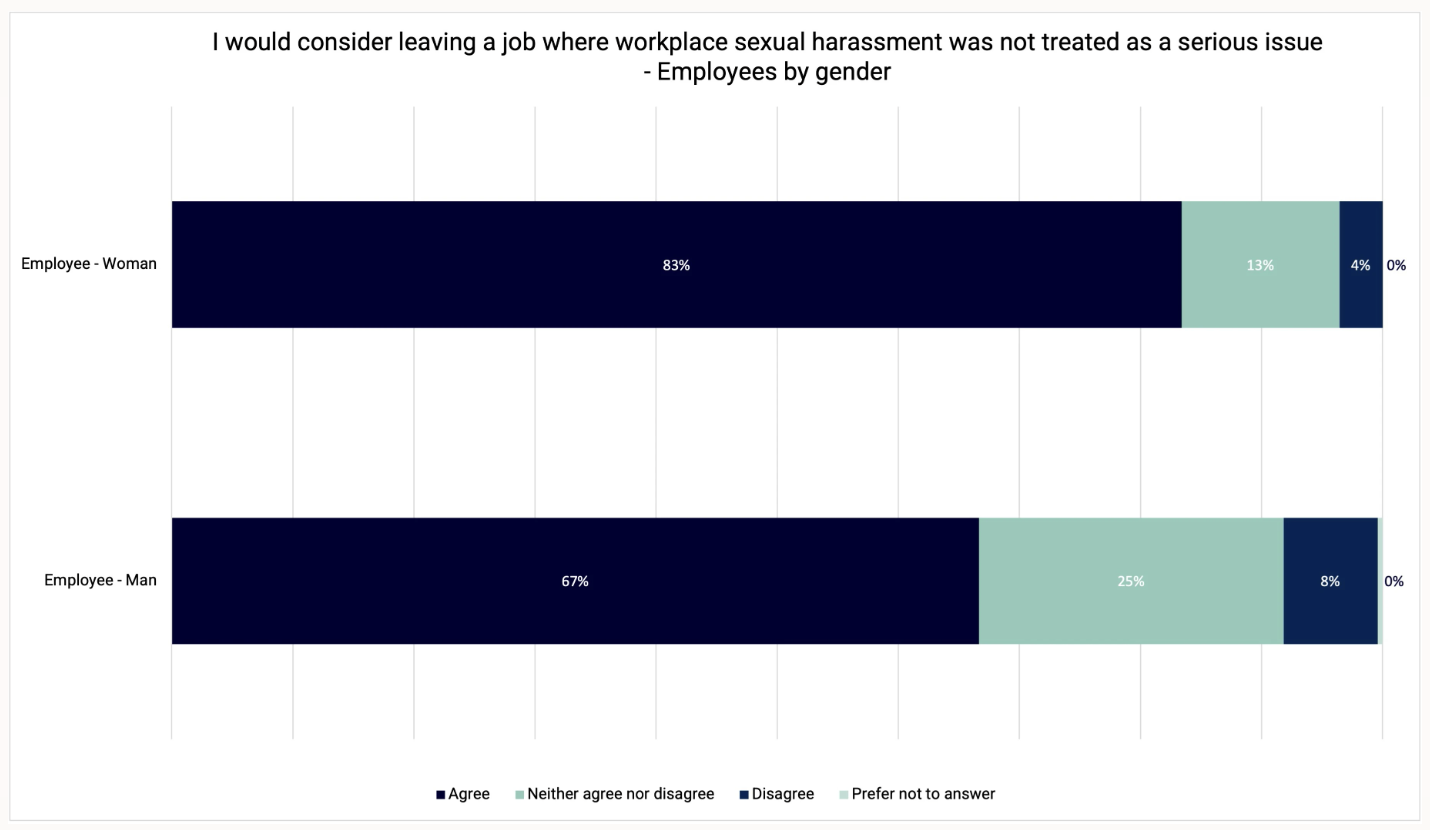
Gender equality also important for attracting, retaining workers – of both genders, finds survey

Three in four employees in Australia would consider leaving an organisation where workplace sexual harassment is not taken seriously, according to a new report from Our Watch.
The survey, which was commissioned by the national violence prevention organisation, surveyed leaders and employees from medium to large workplaces across the country.
It found that 83% of female employees and 67% of male employees would consider leaving a job if workplace sexual harassment was not adequately addressed.

The data also showed that gender equality was particularly important for attracting female employees, with 75% of women compared to 44% of men saying that a workplace's commitment to gender equality would influence their decision to apply for a job.
The findings come in the wake of troubling workplace sexual harassment data from the Australian Human Rights Commission, which reported that more than 40% of women and 26% of men have suffered from workplace sexual harassment in the past five years.
The rate increases significantly for Aboriginal or Torres Strait Islander (56%), LGBTIQA+ (46%) or younger workers (46% of 15-29 year-olds), according to Our Watch.
In addition to the human impact of workplace sexual harassment, findings from Deloitte also revealed that sexual harassment costs the Australian economy more than $3.8 billion a year.
To address sexual harassment in the workplace, the Australian government passed the Sex Discrimination Act to introduce a positive duty in the workplace.
The issue, however, is the lack of awareness among employers, according to Our Watch.
Previous data from the organisation found that 40% of workplace leaders were unaware of their legal obligations, and only 76% were aware that workplace sexual harassment is illegal.
Cara Gleeson, Acting CEO of Our Watch, stressed that the start of the working year serves as a reminder to employers about their responsibilities under the Sex Discrimination Act.
"Under the Sex Discrimination Act, employers have a positive duty to take active steps to prevent and eliminate sexual harassment and workplace discrimination on the grounds of sex," Gleeson said in a statement. "It is not sufficient just to respond to it."
Meanwhile, the survey also revealed a strong correlation between gender equality and workplace culture, with over 80% of both leaders and employees agreeing that it is important for creating a positive and respectful work environment.
"Addressing gender inequality in workplaces is an important way employers cannot only create a positive work culture but also tackle the crisis of violence against women," Gleeson said.
"Evidence shows there's a close association between gender inequality and gender-based violence, including sexual harassment."
According to Gleeson, the findings underscore the need for employers to make workplaces safer to attract and retain talent.
"Employers have a requirement to make their workplaces safe and equal and in doing so they will also attract and retain good staff, especially women," she said.